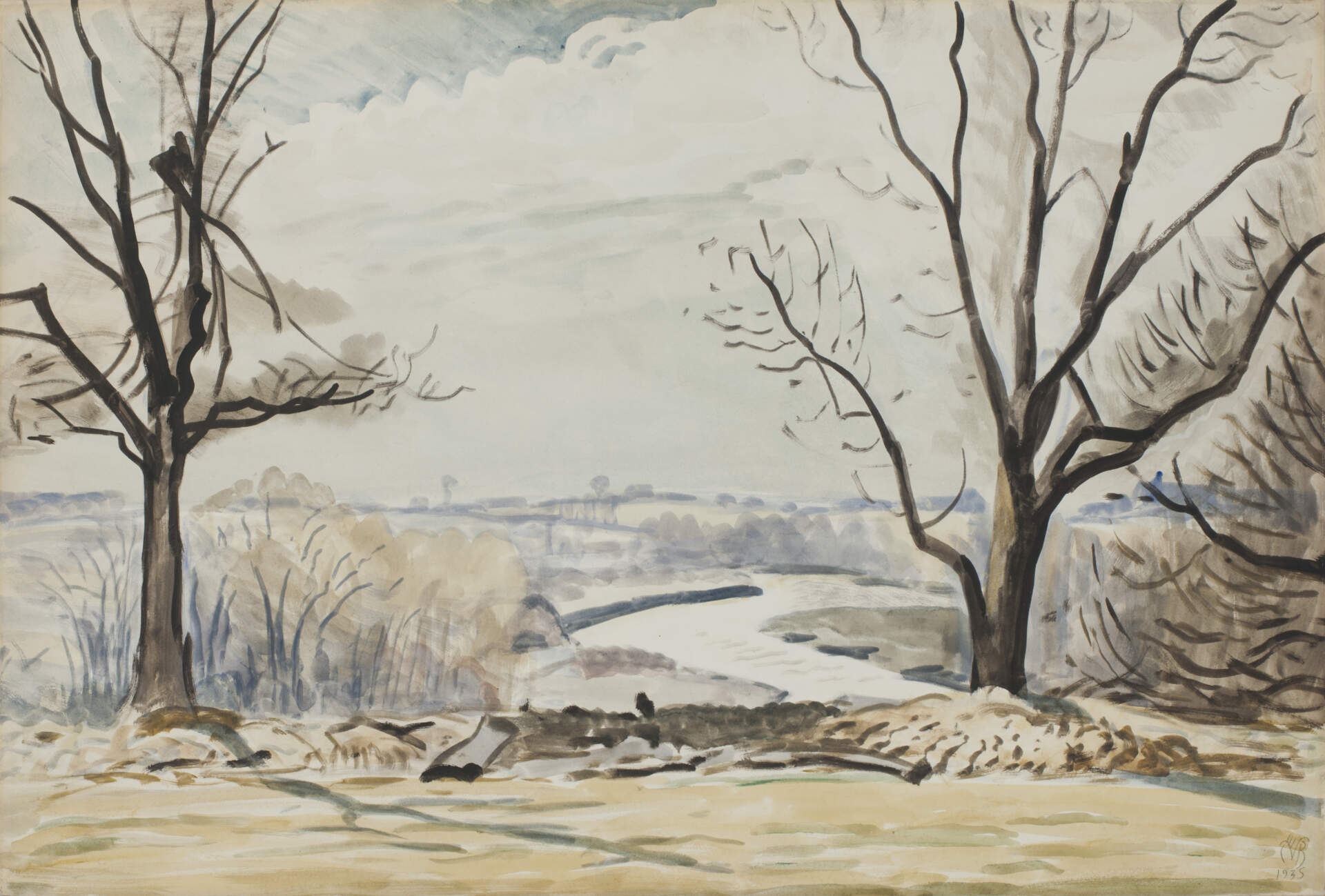
Charles E. Burchfield (1893-1967), Spring Afternoon, 1935, watercolor on paper mounted on board, 18 x 26 3/4 inches, Burchfield Penney Art Center, Gift of Mr. and Mrs. Carl Valentine, 2014
Charles E. Burchfield, Journals, December 16, 1938
Saturday, Dec 16, 2023
Working all day on pictures I am giving away (“Spring Afternoon” 1935 to Valentine; “The Bell-tower – 1932 to Carl Wild; and “Road in Sunlight & Shadow” 1936 to Shaffers).
Walk before supper – notes The first time in weeks that I really see the landscape, everywhere I see beauty — Such long periods of absolute blank frighten me.
Exhortative notes:
A – You have been repeating yourself over & over. It is time to do things of the spirit. (The Fifth Symphony (Beethoven) motive for March) — These things must be done in the most unacademic, unrealistic manner —
It will take hard striving, for you have depended so long on working in front of an actual scene.
B – Too often are your landscapes restricted to moody interpretations of a single tree, a hill, a bit of road–
Seize a large landscape in one eye-movement, accenting here & there, as in “The Bottoms” –
C You are too formal in your approach to your work — There is not enough gayety, casualness — you do not take your subjects from life (too often they are still lifes) –
Such as – a roadside picnic –
A busy street
Boats moving about in a harbor—
and all these things should be done in the most free, calligraphic manner (as in the 1917 interiors).
D – It does you no good to be oppressed by the weight of your guilt – Great as it seems, you must somehow carry on in spite of it. [He is probably feeling guilty that he does not want to be affiliated with organized religion and join a church]. While yours is a mental affliction, you should try to think of it as a trial similar to Beethoven’s deafness, or Stevenson’s tuberculosis etc. and strive to achieve great things in spite of it. The only way to counter-act it is with work — work — work — work!
Create in your work the goodness and innocence and beauty you lack — escape, in creating the despair that goes with your weaknesses [(Burchfield note circa 1955: Many years later — I learned that such “mental sins are not uncommon to many people, and the only remedy is Christ’s atonement)]
E – In a landscape show the warring of two thoughts or natures
a — the hideousness of a foul soul –
b – and pure unalloyed beauty of God in Nature.]
Evening, playing the 2nd, 3rd, & 4th Movements of the Sibelius 6th and the 3rd Movement of his Quartet — the last, the great 3rd Movement, has all the anguish of a soul in agony that we find in Beethoven so often — in the work of Sibelius it stands alone. Tonight, it speaks to me directly, and seems to express my own despair.
Charles E. Burchfield, Journals, December 16, 1938